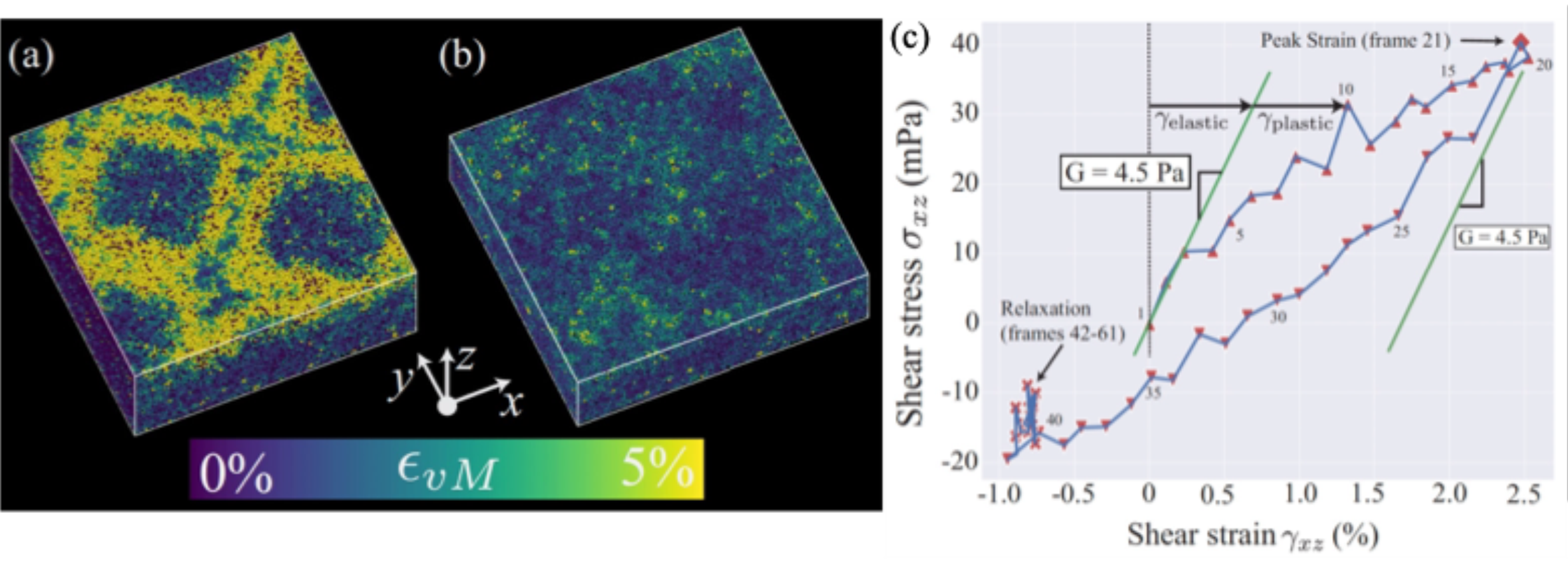Mechanical Testing of Colloidal Solids with Milli-Pascal Stress and Single-Particle Resolution

Spaepen and Weitz have developed a new technique known as traction force rheoscopy, to interrogate the mechanical properties of colloidal solids. The team used confocal microscopy to directly measure stress and strain during externally applied deformation. The stress is measured, with single-mPa resolution, by determining the strain in this compliant gel in mechanical contact with the colloidal solid. Simultaneously, confocal microscopy is used to measure structural changes in the colloidal solid with single particle resolution during the deformation. Using this method, they measured the stress-strain response of a hard-sphere colloidal glass in simple shear, which contains both elastic and plastic contributions. This technique enables one to study deformation mechanisms in a diverse range of soft materials.
Publication:
Terdik, J.Z., D.A. Weitz, and F. Spaepen, "Mechanical testing of colloidal solids with millipascal stress and single-particle strain resolution," Physical Review E 110 (2), 024606-12 (2024) ![]()
![]()
Frans Spaepen��� (Material Science) and David A. Weitz (Physics & Applied Physics)
2024-2025 Harvard MRSEC (DMR-2011754)
